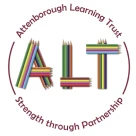RHE; Relationships & Health Education
Our curriculum for Personal, Social, Emotional, Health & Relationships (PSE & HR) Education is detailed below.
We believe relationships and health education is important for our pupils and our school because:
- It is giving children the knowledge that will enable them to make informed decisions about their wellbeing, health and relationships and to build their self-
- It is about giving children the opportunity to put knowledge into practice as they develop the capacity to make sound decisions when facing risks, challenges and complex contexts.
- It is the recognition that everyone faces difficult situations in their lives and how relationship education can support young people to develop resilience, to know how and when to ask for help, and to know where to access support
We view the partnership of home and school as vital in providing the context to both complement and reinforce what pupils learn at home about healthy, respectful relationships, focusing on family and friendships, in all contexts, including online, as well as how to be healthy.
Our school’s overarching aims for our pupils are:
- to foster pupil wellbeing and develop resilience and character that we know are fundamental to pupils being happy, successful and productive members of society.
- to know how to be safe, including online
- to be mentally and physically healthy
- to be able to manage their academic, personal and social lives in a positive way
- to demonstrate personal attributes including kindness, integrity, generosity, honesty, respect and tolerance in order to contribute to adult life in British Society
WE DO NOT TEACH SEX EDUCATION at Shenton Primary School.
This is left to secondary schools to complete as per national guidance.
We do however, as part of the science National Curriculum, teach children in Year 6 about puberty. As parents you will receive a letter stating exactly what we will be covering. The lessons are taught to girls and boys separately to avoid unnecessary embarrassment and allow the children to ask any questions they may have. The lessons are focussed on understanding how our bodies change during puberty, so they are better prepared for this stage in their lives.

